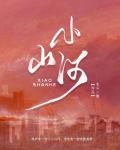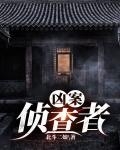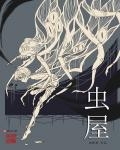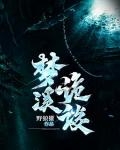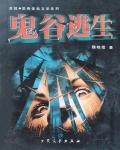third chapter 1
The moment he fell into the cave, Mu Linfeng suddenly regained consciousness. He realized that he must have been tricked by a weasel and fell into his great-grandfather's tomb.
Then he heard a thud, and Mu Linfeng felt his butt fall onto the cold ground. Perhaps because he was too nervous, he didn't feel any pain.
Mu Linfeng first calmed himself down, wiped the dust off his face, turned on the miniature flashlight he carried with him, and looked around: This was a tomb chamber of about ten square meters. At each end of the tomb chamber there was a large vat with a perpetual lamp on it, and the scene inside the tomb chamber was clearly visible.
What is strange is that the middle part of the tomb is empty without a coffin. There are only two half-human-high stone beasts standing on the wall on one side. In the middle of the stone beasts is a stone altar, on which are placed incense burners, candlesticks and other sacrificial utensils.
Seeing the two peculiarly shaped stone beasts, Mu Linfeng knew that they were two guardian beasts. However, what made him feel strange was that other people’s guardian beasts were placed in front of tombs, so why did his great-grandfather place the two guardian beasts in the tomb?
Suddenly, Mu Linfeng understood that from the Tang Dynasty to the Ming and Qing Dynasties, the court had clear regulations that only officials above the fifth rank could place stone sculptures in front of their tombs after death. There were many types of stone sculptures, including spirit-guarding animals, spirit-guarding people, stone pillars, stone huabiao, etc., but ordinary people, people without official positions, were not allowed to have these things, no matter how rich they were, otherwise they would be beheaded.
As an old man, my great-grandfather knew the importance of guardian beasts to tombs, and he also knew that he could not place such stone sculptures. Although my great-grandfather was already in the Republic of China era, many of the concepts left over had not changed, so he could only secretly place the guardian beasts in the tomb and let them guard his coffin.
On the wall between the two guardian beasts, there are two caves shaped like cave dwellings. They are round on the top and square on the bottom. They seem to be the tombs where the coffins are placed. The lower part of the cave is more than one meter above the ground. The two tombs are close together, with a distance of only a dozen centimeters. The cave entrance is one and a half meters high and one meter wide. The shape of the cave is very similar to the front of the coffin.
Approaching the wall, Mu Linfeng finally saw that there was a vermilion-painted coffin in each of the two tombs. The size of the coffin head was almost the same as the cave, and it was retracted a bit inward. The coffin head was more than ten centimeters away from the entrance of the cave.
Mu Linfeng secretly admired that his great-grandfather could design such a tomb. After the heavy pine and cypress coffin was pushed into the cave, it was very difficult to get it out again because the coffin was almost the same size as the tomb and fit perfectly from top to bottom and left to right. It was really a wonderful structure. Perhaps his great-grandfather's was the only tomb in the world like this.
However, my great-grandfather's tomb and burial method were not allowed in ancient times. The tomb is also called "圹". The emperor's tomb has a tunnel, and the tombs of princes and below are like wells, also known as "井夁". Therefore, there are two ways of burial: the emperor enters through the tunnel, and the princes and below enter with a hanging coffin. Stone bars or wooden stakes with holes on both sides of the tomb are erected, and the ropes are controlled by the holes as fulcrums to slowly lower the coffin into the tomb.
According to records: Duke Wen of Jin during the Spring and Autumn Period made great contributions to the country. After his death, he requested to be buried in the tunnel of the emperor, but was rejected by King Xiang of Zhou. This also reflects the hierarchy in burial methods. Mu Linfeng's great-grandfather was actually a commoner without any official rank, so such a tomb was obviously beyond the hierarchy.
Mu Linfeng looked into the tomb with the help of the light from the miniature flashlight. Only the heads of the coffins placed in the two tombs could be seen, and other parts were completely invisible. There were only two big golden characters written on the heads of the two coffins, one with "Fu" and the other with "Shou".
The characters on the coffin are also particular, with "Fu" for men and "Shou" for women, surrounded by bats. At the end of the coffin are incense burners, candlesticks, and boys and girls holding banners.
After seeing the word "Fu" written on the coffin head, Mu Linfeng knew that this was his great-grandfather's coffin. Although there was no remains of his great-grandfather in the coffin, and only his clothes, Mu Linfeng still knelt down and kowtowed three times, while silently saying in his heart: Grandfather, please forgive me, I didn't mean to disturb you, I just slipped and fell down...
After paying respects to his great-grandfather, Mu Linfeng knelt in front of his great-grandmother's coffin and kowtowed three times sincerely. Although there were only clothes and hats in his great-grandfather's coffin, this coffin contained the remains of his great-grandmother, because she died before his great-grandfather and was buried here.
In the past, tombs were not sealed after they were built. No matter which of the couple died first, the coffin would be buried. After both of them died and were buried together, the tomb would be completely sealed.
To be honest, Mu Linfeng admired his great-grandmother from the bottom of his heart, not only because her blood flowed in his body, but also because his great-grandmother could really be called a legendary woman. "Geda" and the tomb robbers were mortal enemies, and it was conceivable that they could come together and go through all the obstacles they had to face. The combination of these two people was really a miracle.
At this moment, Mu Linfeng suddenly had an idea in his mind. If he had the chance in the future, he would definitely write the story of his great-grandfather and great-grandmother into a novel. He believed that the plot would definitely be very exciting.
Just then, Mu Linfeng heard a squeaking sound behind him and turned around hurriedly. It turned out to be the missing weasel. It raised its front legs and stood at the foot of the opposite wall with its slender body like a bent bow.
This cute little thing wagged its long tail, as if mocking Mu Linfeng for falling from above. After seeing the weasel, Mu Linfeng suddenly realized that there was no way out in this tomb with stone walls on all four sides. Where did it come from?
At this time Mu Linfeng also realized that it was a problem for him to get out, so he quickly looked up at the top of the tomb, where he had just fallen.
I don't know when the stones on the top of the tomb returned to their original state, and I can't see where the hole is. In fact, even if there is a cave on the top, a person can't get out. The top is more than three meters above the ground. The smooth top is a dome-shaped design. Without the help of external force, a person can't get out at all.
Seeing this, Mu Linfeng suddenly broke out in sweat, thinking that he would not be trapped and die here, right? If so, he would be buried alive with his great-grandfather.
Mu Linfeng looked around the tomb, looking for a way out. When his eyes inadvertently swept across his great-grandfather 's tall coffin, a thought flashed through his mind...
This is my great-grandfather's tomb, and I am his only descendant. If I die here, who will sweep his tomb and offer sacrifices to him in the future? So I should not trap myself. This tomb was designed and built by my great-grandfather himself, so there should be a way out.
Thinking of this, Mu Linfeng knelt in front of his great-grandfather's tomb again and said loudly: "Grandpa, I am here to look for our Mu family's unique tomb-viewing skills and the "Emperor's Burial Mountain Map". If you know about it in the underworld, please show me a way out. In the future, I will burn more paper money for you so that you can live comfortably over there..."
As soon as Mu Linfeng finished speaking, he heard another squeaking sound behind him. He turned around and saw the little elf staring at him with its two round eyes, squeaking at him.
Mu Linfeng's heart moved. Could it be that this little elf wanted to say something to him? So he said to the weasel: "Brother Huang, you led me here. Please show me a way out."
The weasel suddenly jumped twice, and its feet seemed to be intentionally stomping on the stone slabs under its body, making thumping sounds under its feet...
Hearing this sound, Mu Linfeng suddenly realized that there was nothing underneath the stone slab under the weasel's feet, otherwise it would not have made such a sound.
Mu Linfeng was suddenly overjoyed, thinking that this little elf must be conveying some information to him. He hurried over and knocked hard on the stone slab where the weasel had stood. Sure enough, there was a bang bang sound, and it was obvious that there was nothing underneath. Mu Linfeng quickly moved the stone slab away, and sure enough, a dark hole was revealed.
After finding the way out, Mu Linfeng hurriedly turned on the flashlight and walked towards the cave entrance. Seeing Mu Linfeng coming, the weasel actually jumped into the dark cave entrance first. Could it be that this little elf wanted to lead the way for him? Mu Linfeng thought while looking down with the flashlight. The narrow passage led diagonally downwards, and it was so dark he could not see the end. He slowly shrank his body into the cave entrance.
After entering the cave, Mu Linfeng suddenly felt a burst of coolness coming out of the dark cave, and the sweat that had just been sweating disappeared immediately. The cave below required bending over to pass through. Walking in the cave was very similar to the scene in the movie "Tunnel Warfare". From the cave wall, it can be seen that this tunnel was dug by humans. It is very likely that it was built when the great-grandfather built the mausoleum. So what was the purpose of the great-grandfather building this tunnel? Mu Linfeng's heart was full of curiosity.
I didn't know how far I had walked, it felt like about fifty or sixty meters, and suddenly a spacious space appeared in front of me. It was another tomb chamber of more than ten square meters in size, similar in size and shape to my great-grandfather's tomb. The only difference was that this tomb chamber had two more entrances and exits. There was also an identical entrance opposite the one that Mu Linfeng entered. I didn't know where it led to.
There is also a tomb on the wall on one side of this tomb chamber, but there is only one. What is placed in the tomb is not a coffin, but a large porcelain jar more than one meter high, which looks very much like an "urn coffin".
It was the first time that Mu Linfeng saw an urn coffin. He had only heard of it before. Urn coffins had been extinct in this area for hundreds of years, but he didn't expect to see it here.
On the altar in front of the tomb, there were not only incense burners, candlesticks and other items, but also a tablet. Mu Linfeng held up a candle and took a closer look, and found that the name written on the tablet was actually the name of the first generation ancestor of the Mu family in the family tree.
Mu Linfeng was stunned for a moment. Could it be that the remains of the ancestor were in this urn? How could this be possible? Because there was a tomb of the ancestor of the Mu family in the cemetery in the back mountain, how could there be another one here? Two ancestors suddenly appeared, and Mu Linfeng was immediately confused.
Mu Linfeng took the ancestor's tablet and looked at it. It was made of chestnut wood. According to local customs, a small sacrifice should be held one year after the death of the deceased. The tablet should be made of chestnut wood again, which is called "Jizhu". Mu Linfeng wiped the dust off the tablet with his sleeve, thinking that no matter what, since the ancestor's tablet was here, he had to pay homage to it.
Thinking of this, Mu Linfeng wiped the ancestor's tablet clean and put it back in place, then took a step back, knelt in front of the altar with his knees bent, and kowtowed with his hands on the ground.
After bowing three times, just as Mu Linfeng was getting ready to get up, he suddenly discovered that there were faint words engraved on the stone slab on the ground. He hurriedly brushed away the dust on the stone slab with his hand, then reached out for a flashlight and used the light to identify it. Sure enough, he found that there were a few lines of small words engraved on the stone slab in front of the altar. If he had not knelt down, it would have been difficult to see these unclear words.
Mu Linfeng took a careful look and found four sentences engraved on the stone slab: The fact that you can discover these words means that you are a descendant of the Mu family. Open this stone slab and take out the porcelain bottle underneath.
After reading the words engraved on the stone slab, Mu Linfeng realized that these words must have been left by his great-grandfather. His great-grandfather was really smart. Only the descendants of the Mu family would kneel down after seeing the tablet of their ancestor, and only then would they have the opportunity to discover these small words on the stone slab.
Following the instructions, Mu Linfeng lifted the engraved stone slab. Underneath was a small hole only about ten centimeters square, and inside was a ceramic bottle with a thin neck and a big belly.
Mu Linfeng carefully took out the porcelain bottle. It was dark in color and about the same size as an ordinary wine bottle. The small mouth of the bottle was sealed with clay. The porcelain bottle was very light and there seemed to be nothing inside.
With the help of the light, Mu Linfeng suddenly found a few lines of small words engraved on the rough surface of the ceramic bottle: The direct descendants of the Mu family who swear to inherit the tomb-watching skills can smash this porcelain bottle, otherwise they must not move it. If you don't move the bottle, I won't move you.
Seeing the last eight words, Mu Linfeng couldn't help but feel a chill in his heart, as if a pair of eyes were staring at him in the darkness, and his back suddenly felt cold...
Mu Linfeng couldn't imagine what kind of treasure was hidden in the porcelain bottle. Could it be a special skill of tomb-viewing passed down from ancestors? Otherwise, he wouldn't have said it so frighteningly!
Thinking of this, Mu Linfeng held the ceramic bottle in both hands, knelt in front of the ancestor's shrine again, and solemnly swore: I, Mu Linfeng, the 21st generation descendant of the Mu family, swear to inherit the Mu family's unique skills and never let down my ancestors' trust...
Afterwards, Mu Linfeng knocked the ceramic bottle gently to the ground, and the bottle broke into pieces, revealing a yellowed envelope inside.
Mu Linfeng bent down to pick up the envelope and shook off the ceramic fragments on it. He saw that there were also a few lines of small words written on the envelope. The handwriting was regular script written with a brush. The font was neat and powerful, and it could be seen that the writer had a deep foundation.
"Before opening the envelope, you must swear a poisonous oath and become a coffin keeper before you can inherit the tomb-watching skills."
After reading the words on the envelope, Mu Linfeng couldn't help but shudder, and suddenly felt fear in his heart.
"The vigil keeper"!
Mu Linfeng didn’t know what these three words meant specifically. In front of many ancient tombs there were many stone sculptures of spirit keepers and spirit beasts, but this was the first time he heard of a living person becoming a “spirit keeper”.
Holding the envelope, Mu Linfeng suddenly hesitated. He didn't know whether he should open it. The "vigilator" did make him feel a little scared. This fear was not fear of something, but a worry about the unknown. He couldn't imagine what would happen after he opened the envelope...
Just when Mu Linfeng was hesitating, the golden elf suddenly jumped onto the altar. The little thing wagged its big tail, stared at Mu Linfeng with its round eyes, and made a squeaking sound from its black mouth, as if urging him to open the envelope.
Seeing this clever weasel and recalling this series of adventures, Mu Linfeng felt that coming here was something that was destined by fate. He looked at the ancestor's shrine and thought that his ancestors would definitely not push their descendants into the fire pit. Moreover, it now seems that the ancestors are not only "lumps", but also "spiritual keepers". Since the ancestors are all spirit keepers, what else do he have to worry about!
Thinking of this, Mu Linfeng secretly said to himself: Just do it, there is nothing to worry about, I am the descendant of the spirit keeper... So he said loudly to the spirit tablet of the ancestor: "Mu Linfeng, the 21st generation descendant of the Mu family, swears to be a 'spirit keeper'. If I break my promise, I will die without a burial place!"
Mu Linfeng absolutely did not realize that the oath he made would cause him a lot of trouble and unspeakable pain in the future.
After swearing a solemn oath, Mu Linfeng tore open the envelope without hesitation and pulled out two pieces of letter paper.
This letter was left by Mu Linfeng's great-grandfather. The letter mentioned that the Mu family's unique skill of tomb-reading was learned by the first generation ancestor from a wandering Taoist priest. Before imparting the skill, the Taoist priest also asked the ancestor to swear to become a "spirit keeper" and only then passed on the skill to the ancestor of the Mu family.
After the Taoist priest taught the art of tomb selection, he also handed over a painting of "Emperor Burial Mountain Map" to the ancestor of the Mu family. This ancient map marked many emperors' tombs hidden in the mountains. The responsibility of the "spirit keeper" is to protect the peace of these unknown emperors' tombs.
The reason why the Taoist priest passed on the tomb-finding skills to the ancestor of the Mu family was to enable the Mu family to protect the emperors' tombs on the "Emperor's Burial Mountain Map" for generations, because it is difficult to find the aura of the emperor's tomb without mastering the tomb-finding skills.
It turns out that when each emperor's mausoleum was built, an airway was left. This airway runs from the underground palace of the mausoleum to the outside. The purpose of this airway is to allow the emperor's soul to enter and exit. No matter how secret the mausoleum is built, this airway must be there, but the airway is not open at all times, but only once every period of time. The airway is opened at different times in different mausoleums, some are long and some are short. The shortest time is once every three or five years, and the longest is once every sixty years, which is sixty years.
The duty of the spirit keeper is to ensure that the emperor's mausoleum is not disturbed when the airway is open. Because tomb robbers will take advantage of the opportunity of the airway to find the specific location of the imperial mausoleum's underground palace and enter it. Many imperial mausoleums were robbed because tomb robbers used the airway to find the location of the imperial mausoleum's underground palace and then carried out tomb robbery.
However, the biggest difficulty for tomb robbers is that they do not know the exact location and opening time of the airway in the imperial tomb, and the airway is only open at a certain time of the day. If you are not familiar with it, it is difficult to find the existence of the airway. Therefore, some tomb robbers will even arrange people to wait for several years in order to find the airway in the imperial tomb.

